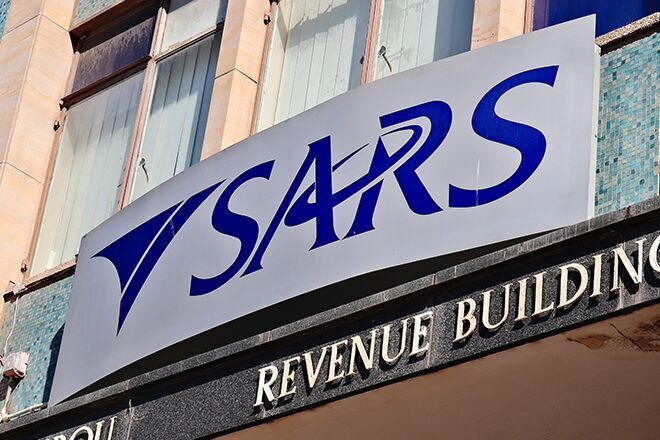Optimal Allocation Of SARS Record Tax Collection - Where the fund allocation must go
Written by: Tyler Oliver Save to Instapaper
Johannesburg, 29 April 2024 - The South African Revenue Service (SARS) has reported a landmark tax collection for the fiscal year ending March 2024, amassing a gross total of R2.155 trillion. This figure represents a year-on-year growth of 4.2% against the nominal GDP growth of 4.9%. After disbursing R414 billion in refunds, the net collection stood at R1.741 trillion, surpassing the revised estimate by nearly R10 billion and last year's total by R54 billion. Fred Razak, Chief Trading Strategist at CMTrading, delves into the implications of these figures and advises on strategic fund allocation.
Analysing the Record Tax Collection
"Firstly, we must recognise that this year's record is somewhat deceptive when adjusted for inflation, aligning more closely with previous years' performance rather than a true surplus," Razak points out. He emphasises the necessity of interpreting these numbers within the broader economic context to guide effective policy-making.
Strategic Investment in Infrastructure to Drive Growth
Razak identifies infrastructure, particularly in the electricity sector, and load-shedding issues as critical areas that need urgent attention. "South Africa's pressing challenge is its infrastructure. Efficient infrastructure is the backbone of industrial productivity. By prioritising developments that enhance operational efficiency, particularly in pivotal sectors like mining, we could stimulate a significant uptick in industrial activity and, consequently, tax revenues in the long term," Razak suggests. He argues that strategic investments in these areas are crucial for sustainable economic expansion and improved fiscal health.
Redistributive Taxation to Stimulate Economic Activity
Further, Razak offers innovative fiscal strategies to enhance economic dynamism. "It might be time for a strategic redistribution of tax burdens. By adjusting tax rates—lowering them on consumer goods while potentially increasing them in other sectors—we can fuel consumer spending and overall economic vitality. This approach not only boosts immediate economic activity but also encourages investments in new technologies and sectors, leading to widespread benefits across various industries,”.
Encouraging a Broader Economic Renaissance
Razak envisions these fiscal adjustments as catalysts for a broader economic renaissance. "Such fiscal strategies could invigorate underexplored sectors, leading to enhanced job creation, higher consumer spending, and ultimately, a more robust tax base. The interconnectivity of sectors means that stimulating one area can have cascading benefits across the economy,".
In conclusion, while SARS's record tax collection is an encouraging sign of economic activity, Razak advises that the focus should not merely be on celebrating these figures but on strategically employing them to address long-standing economic challenges and to catalyse growth across various sectors. His insights suggest a proactive approach to fiscal planning and investment, aiming to strengthen the economic fabric of South Africa for more sustainable development and prosperity.
Follow CMTrading on Facebook, LinkedIn, Twitter, Instagram, YouTube , TikTok and Telegram.
Follow Fred Razak’s Daily Podcast
CMTrading is the brand name of Global Capital Markets Trading Ltd (A Seychelles company, company no. 104785)
Latest from
- South Africa’s Energy Future Takes Centre Stage - Electricity Expo Africa 2025 Launches
- Growing Green Minds - Eco Lessons for Young Children
- CFI Financial Launches Free Trading Seminar in Johannesburg
- AHF South Africa Marks Youth Day with Tribute to Young Leader’s Resilience
- Youth Month - The First Steps to Financial Stability Must Start Early
- The Heart Of The Home Celebrating The Power Of Motherhood In South African Culture
- The Hidden Risk To Your Business What You Need To Know About The Financial Intelligence Centre
- Benefits Of Learning Multiple Languages – A Parent’s Role In Language Development
- CFI Financial recognised at FMAS - 25 for innovation and impact in African trading
- Understanding Global Shifts and Strategic Responses for South African Traders
- CFI Launches CFI Academy to Empower Traders and Investors
- Menstrual Health Day (28 May) – Breaking the Silence, Ending the Stigma
- Making Every Moment Count - The Value of Quality Time with Children
- Making Every Moment Count - The Power of Meaningful Time with Children
- Financial Empowerment Isn’t Just for the Wealthy – CFI CEO Zihaad Israfil Shares Practical Steps for Every South African
The Pulse Latest Articles
- Liezel Van Der Westhuizen On Why Winter Workouts Feel Harder And How To Stay Consistent (July 28, 2025)
- From Eastern Cape To England: Zintle Mpupha’s Road To The Rugby World Cup (July 27, 2025)
- Athini Magodla Reveals Why Modern Refreshment Fuels Performance Over Perfection In Today’s Wellness Culture. (July 27, 2025)
- Why More Mums Are Choosing Less Sugar - Not No Sugar (July 27, 2025)
- Scaling Hospitality: How Jimmy Eracleous Runs Two Of Moo Moo’s Top-performing Franchise Restaurants (July 27, 2025)
